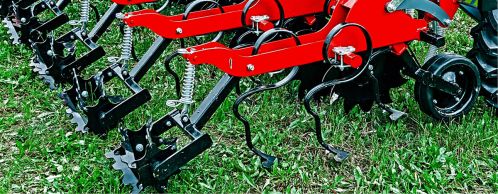
Farm Energy Usage - When Was Your Last Energy Assessment?
With tighter margins on commodities, producers are likely looking for ways to trim expenses in 2024. One expense line item that is often overlooked is utilities. The Focus on Energy program offers energy audits for farm businesses. According to Energy Advisors Jessica Mlsna and Joel Roltgen, Focus on Energy can help with determining whether your project qualifies for rebates, completion of paperwork, and if you have the right equipment.
An energy assessment specific to a dairy farm would include reviewing the following:
- Lighting - An energy advisor will review what type of lighting is present, not only in the barn but other major outbuildings, such as a machine shed or shop. It may be beneficial to consider converting to LED bulbs and use of lower wattage.
- Variable Frequency Drives (VFD) - A second factor to consider is the use of VFD motors on augers, manure handling equipment, and sand separation equipment. Slowing the motor down saves energy.
- Fan Usage - In a tunnel and cross vented barns, fans are the largest use of energy - more than all other factors combined. The use of VFDs on these fans can save considerable energy as it is more efficient to run all fans on half speed versus half of the fans on full speed. Keeping your fans clean also is important as dirty fans can increase energy usage by up to 20 percent.
- Dairy Operation Equipment - The fourth energy factor to consider on a dairy farm is the operational equipment; plate coolers, vacuum pumps, and bulk tanks. Consider scheduling a preventive maintenance appointment to assess your equipment for air leaks, dirty compressors, and low coolant levels, which all negatively affect the equipment performance and thereby increase energy costs.
- Heating Equipment - Space heating equipment and water heaters should be evaluated for efficiency with consideration to the use of a commercial model, as they tend to be more efficient and have greater longevity than a household model sourced from a big box store.
For more information regarding Focus on Energy assessments and rebates, visit https://focusonenergy.com.



